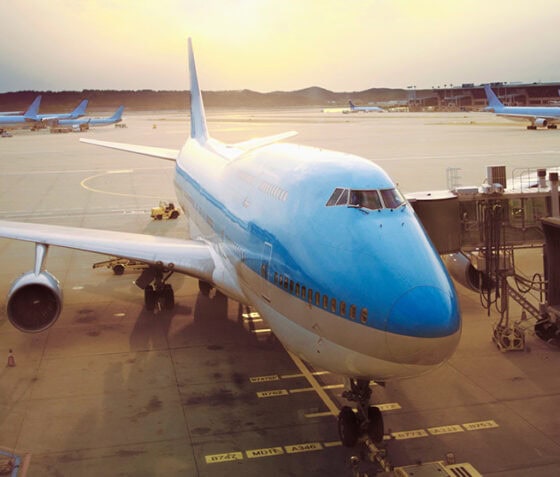Korean Air sets a flight plan for IT modernization with Rimini Street
Established in 1969 with a fleet of 11 airplanes and seven destinations, Seoul-based Korean Air has grown into the largest passenger air carrier in Korea and among the top ten airlines in the world. Today, Korean Air operates a fleet of 159 aircraft with routes to 111 cities in 40 countries. It also helped establish SkyTeam, an alliance with Delta Air Lines, Air France and Aeroméxico that extends its reach to more than 1,050 cities in 166 countries through 18 partner airlines. Korean Air is committed to being a respected leader in the world airline community by delivering excellence across service, operations and innovation.
Reducing the Oracle maintenance commitment
Korean Air’s commitment to excellence extends beyond its flight operations to its internal processes and systems. Since 2010, Korean Air has relied on Oracle systems. The resources needed to run all their Oracle software and databases accounted for a substantial portion of its IT budget. “There was a need to lighten the load and upgrade the system, presenting a host of tasks. At that time, we couldn’t rely on Oracle’s maintenance, which led us to switch to Rimini Street,” said Park Sung-Yeon, ERP IT Team Leader at Korean Air. Additionally, the migration to Amazon Web Services (AWS) presented further challenges that required expert, reliable support to navigate.
Rimini Street’s support for Korean Air began with Oracle’s Siebel. Based on the success of the partnership, Korean Air extended Rimini services to cover its entire Oracle enterprise software portfolio. This move allowed the airline to reduce its Oracle software maintenance costs significantly, enjoy more responsive and efficient support, and focus on their strategic IT initiatives.
Building synergies that drive trust
Unlike Oracle, which according to Sung-Yeon, they’d only hear from at renewal time, “Rimini Street maintains regular and periodic checks, offering continuous support. This proactive approach has led to a closer human relationship, fostering a synergy that enhances our collaborative efforts.”
A major upgrade task force was set up in 2022 and concluded in July 2023, to address complex challenges across databases, applications, and technologies. “When we were migrating to AWS and upgrading our ERP, without Rimini Street, we wouldn’t have had the right care, and it would have been a very difficult project,” said Cho Yeon-Jeong, ERP IT Team, Manager. Sung-Yeon added, “What stood out was not just the rapid response…the monitoring, follow-ups, and the feeling of being constantly supported were evident. We deeply appreciate it.”
Looking ahead, Korean Air is preparing for a major initiative: a merger with Asiana Airlines. This integration, particularly merging Asiana’s SAP system with Korean Air’s Oracle ERP, will require substantial support from Rimini Street. “I believe their expertise will be crucial in navigating the complexities of this integration,” said Yeon-Jeong.
Ready for takeoff with stable Oracle systems
Rimini Support™ for Oracle provides Korean Air with more responsive support because of a deep knowledge of their operations. “They have a high level of understanding of our operations, which means that when we report a problem, we don’t need to provide a lot of additional information,” said Sung-Yeon.
Korean Air’s strategic partnership with Rimini Street has rebalanced the high-cost/low-efficiency dynamic that it was experiencing with Oracle’s maintenance and support. With Rimini Street’s expertise and commitment to service, “We now have a more agile partner supporting the stable operation of our mission-critical enterprise software in the cloud – all under a single roof. This move has provided us with even more efficiencies than we were experiencing previously, and it has freed up the team to focus on other more pressing business projects,” said Sung-Yeon.

- Oracle expertise for cloud move and upcoming merger
- Responsive support to drive operational efficiencies

